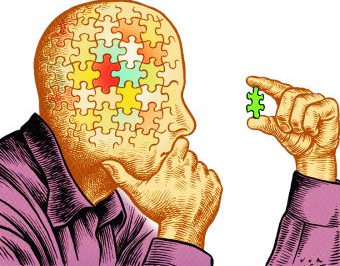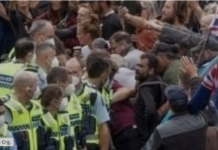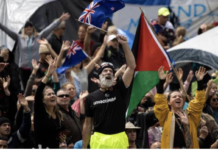
I am rangatahi. I am five years out of school now, and it has only been in the last two that I have been meaningfully exposed to the need to fill the gaping void within my education concerning the human price of our individual and systemic failings to uphold te tiriti.
I immigrated to Aotearoa with my family when I was nine, having lived in Ireland and Canada as a young child, my parents likewise never having lived in New Zealand. I received my New Zealand citizenship when I was 16. According to the date of our residency papers, I wasn’t officially entitled to it yet, but according to the fact that I’d qualified to swim for my country internationally, I was obliged to obtain it (or similar recognition of official “belonging”). But these politics were little more than an ironic distraction from questions I was not brave enough to ask, but equally to which New Zealand was not forthcoming about answering to my satisfaction. What was the real meaning of “New Zealand citizenship”, after all? If there is a timeline for being “allowed” citizenship, if there is an oath one must swear to receive it, if there is a bond between you and your country where you are granted particular privileges because of this status, surely the systems are sending signals that citizenship is something earned, not to be taken lightly. But what was it that I was supposed to have learnt in the five years that must officially transpire between residency and citizenship? What was it that I would swear my allegiance to? In what ways would I have grown to now deserve this privileged status?
With the clock ticking between my arriving in New Zealand and being granted citizenship, I went to three schools and followed a mishmash of curriculums. In primary school, I thought the little reo we learned was fun and I wished we had studied more. For me, this is no surprising; I loved languages from a young age, and would go on to become fluent in Spanish and French. However, to think back on what I recall actually learning in primary school now, I am saddened and find it difficult not to feel resentful. To be sure, I am glad my teachers sewed the seeds of an interest in the nati”e tongue of tangata whenua in me. They taught us how to count to 20, some colours, and some command words like run and jump. The best part was the kapa haka group, where we learned whole waiata and haka. But those seeds were merely ready to lay dormant for a very, very long time. Where was the explanation of why we should care about te ao Māori? How on Earth were we, as ten-year-olds none the wiser, supposed to guess that behind these wrote translations of material concepts, lay a lexicon in the reo that upheld another form of worldview? Where were the explanations of what we were singing and chanting about in kapa haka? Where were the lessons on tikanga, on kaupapa, on manaakitanga, kaitiakitanga, whanaungatanga?
I do remember one lesson on the Māori understanding of how the Earth began with Ranginui and Papatūānuku. It was an important lesson but it was an isolated story that could belong to no wider narrative for me. By year 7, I could recite a pepeha, and I understood that we should acknowledge places, nature and our ancestors before ourselves. All this was interesting, but at the time, with no wider understanding of Māoridom, it was not enough, not even close, for me to begin to comprehend the mana and the values that we trample on as we continue to fail to uphold, and sometimes to actively resist upholding, the promises laid out in te tiriti o Waitangi.
But according to the New Zealand citizenship process, none of that matters. Even if I’d learned absolutely zero concerning te ao Māori,—and my parents, for instance, very nearly fit into this category—my right to citizenship, on paper, would remain perfectly in tact.
On to the next question, then: what was it that I would swear my Allegiance to? I obediently swore (or “solomnly affirmed”, to be precise) my allegiance to Queen Elizabeth the Second, Her heirs and successors. I also agreed that I would “faithfully observe the laws of New Zealand and fulfil my duties as a New Zealand citizen”. Even at 16, I knew that my duties would surely go beyond my civic duty to vote in elections and to abide by written law, but I have no recollection of receiving any information on what the rest of them were.
It seems fundamentally wrong that the single most effective force encouraging me even to start educating myself on the colonial systems I unwittingly partake in has been the korero of thought-leaders like Moana Jackson, Māori activists like Julia Whaipooti, and Māori leaders within the blindness community like Chrissie Cowan. This feels wrong not purely due to the burden to educate that these people end up bearing, but also because the burden upon all of us becomes heavier the longer we leave genuine attempts at education on te ao Māori out of our schools, politechnics, universities, workplaces, churches and community groups. Ultimately, we are never going to imbue primary school children with a sense of responsibility to keep learning about a language if they see the reo as an isolated means of communication which we might borrow the odd word off in English but which is fundamentally the dominion of those Māori who can communicate fluently in it. The reo must be explained, first and foremost, as an educational tool and lens through which we can learn and teach about te ao Māori, and how this world has been wrong not by the fact of foreigners arriving in New Zealand and wanting to live here but by their practices of domination, their understandings of what it was to be “civilised” and systems which propped up and propagated those understandings. The reality of language education in schools, at least in Aotearoa from my experience is that, barring immersion programmes, the vast majority of students who do not take a language past around year 11 are highly unlikely to come out of school anywhere remotely near fluent. That, arguably, is a concern in itself, but surely a far more pressing worry is that many of us come out of school with no drive or sense of responsibility in particular to continue on the journey to figuring out what we, individually and collectively, can do to be tangata tiriti who can say that we are playing our part to respect our end of the bargain.
Upon gaining citizenship, I intellectually felt more justified than I had before about saying I was “from New Zealand” and calling myself a Kiwi. Citizenship comes with other privileges not afforded non-citizens too, like the ability to run for parliament or local government, but at 16, I had no particular idea of the mechanics of any of that. The internal question of what it meant to be a New Zealander, however, grew increasingly louder over time. Initially, when I would swim for my country overseas, the question of where I was from was easy—and in fact, rarely asked, as we were usually all dressed in our New Zealand paraswimming team uniform. In these cases, I was from New Zealand, full stop. I may have been taught to swim elsewhere, but my training, coaching and everything else to do with my swimming career most definitely took place in Aotearoa. I was part of New Zealand paraswimming and Paralympic teams, I was proud of that and I still am.
But as I got older and went overseas on exchanges to Spain and France to improve my language skills, I was asked very regularly indeed where I was from. I am a citizen of Ireland, Canada and New Zealand, I have strong family ties to all three countries, different parts of my identity reside in all of them, and I even have the privilege of having visited Ireland and Canada quite a few times since living there as a child. Nonetheless, I usually start off by saying that I’m from New Zealand. For the most part, I’m happy to do so; I have lived here for most of my life, many of my friends are friends I made here, many of my interests were nurtured here, and fortunately I have the security of knowing that my official papers saying I’m a citizen even testify to that. Naturally, this response often leads to questions about what it’s like to live in New Zealand, to grow up in New Zealand, to be Kiwi. My interlocutors are curious to know about the modus operandi of these people who live on the opposite side of the world, beyond the stereotypes of sheep, clean-green and rugby. Part of me is always questioning whether my New Zealand experience as an immigrant is valid enough to share or whether it’s the real deal—whatever that’s supposed to mean—and that is a kōrero for another day. What I want to emphasise now is that we don’t collectively seem to consider a sense of responsibility to keep learning about and nurturing te ao Māori as a prerequisite of being Kiwi, certainly not on paper but all too often, not in practice either. I wish that when people would ask whether I was Māori and say they’d watched the All Blacks haka and that they heard we were doing good things to keep the language alive, that I had the knowledge and confidence to go beyond explaining that I am pākeha and instead introduce them to the idea that te ao Māori extends far beyond a percentage of a census population, an endangered language and a war dance. It extends, I wish I would say, into a realm of people who value bonding and nurturing relationships with each other in all spheres of influence, who have practices that strive to respect the sacredness of Mother nature when she is most in trouble, who are individuals but who are also a collective, a people, who we can learn a lot from if only we could make sure that everyone knew why we need to make a lot of time to listen to them.
I’ll be the first to openly admit that I could have prioritised my own education on te ao Māori far more than I have, and that I am guilty in that regard. I take responsibility for that and I’m not proud of it. But I wish our systems of education, which must also extend beyond formal institutes of learning, might come to the table with this understanding too, so that it can be felt not just in the upper echelons of policy but in those who set curriculums, in all educators and eventually by us, the learners. I wish that the citizenship process had made it explicit to me that our duties as citizens extended, privilege permitting, to put ourselves in spaces, to find literature and to listen to tangata whenua in order to keep learning about, and try to uphold, te tiriti. And I wish that in Spain when I’d tell Spanish citizens in tapas bars that I’m from New Zealand, I’d be proud to know that I’m actively seeking to understand the history of my country, and act in a way that can honour the mana of its founding people, through to the tangata whenua of the present. I say tentatively that I think I have just begun on that journey now, several years out of high school and down largely to the kōrero of particularly articulate and tireless individuals, and of being privileged to witness and see the fruit of whanaungatanga in action. The knowledge that my understanding of the need to embark on this journey came out of such specific experiences, that it was by and large not founded within my education or my officially belonging to New Zealand, is terrifying because I know I am not an isolated case. We need to do our utmost to ensure all New Zealanders and immigrants are strongly urged to travel with us on this journey, and are provided with enough foundation in te ao Māori to do so.





See Martyn’s article from a couple of days ago about te reo, posturing and middle class wank. Beware your cultural appropriation.
You seem to mean well and want to tell people about it. Good for you.
All good and well until your final sentence about doing our utmost to ensure and strongly urged. Says it all really.
Comments are closed.